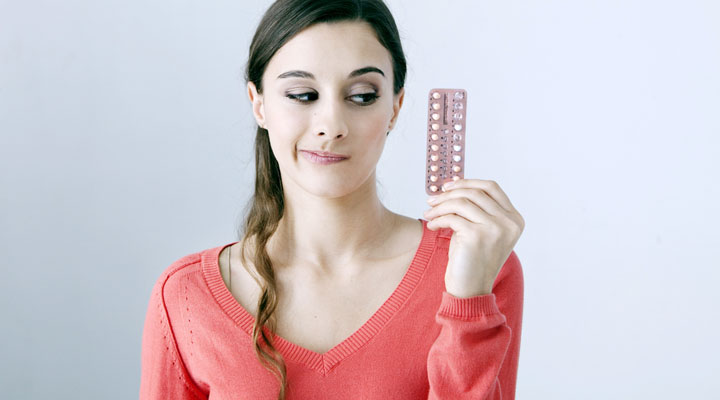Birth control pills are a popular form of birth control in the United States. In fact, some research has shown that it is the most popular form. There are many reasons why this is the case. Oral contraceptives, or “the Pill”, are associated with lighter, more regular periods, less severe PMS symptoms, and clearer skin. All of these nice side effects are a result of birth control hormones working in your body. But what happens to your body when you stop taking birth control pills? The answer to this question begins with an explanation of how birth control pills work.
Science Behind the Pill
Most birth control pills contain two synthetic hormones—estrogen and progestin—that operate to regulate a woman’s natural hormone levels to prevent ovulation, conception, and pregnancy. Specifically, these synthetic hormones prevent the natural rise in estrogen in the middle of a woman’s cycle that triggers the pituitary gland to send more hormones that aid in the release of a mature egg from the ovary. This stabilizing of hormones is also why so many women experience other enjoyable symptoms.
Stopping the Pill
After your body has been regulated by birth control pills for some length of time, you are probably wondering what will happen when you discontinue use. The first and most obvious change will be ovulation. Your body will begin to ovulate in normal cycles as before, which means you could become pregnant. Additionally, ovulation itself has a set of symptoms including breast tenderness, light spotting, cramping or pain on one side, increased sex drive, and bloating.
Aside from ovulation, there are other, less obvious changes you may experience. While not all women experience birth control or coming off birth control the same way, here are a few changes to be aware of.
- PMS Symptoms Could Worsen
Without the pill, your body will likely revert back to normal hormone fluctuations. This means that any PMS symptoms you experienced before the pill such as moodiness, headaches, breast tenderness or food cravings will likely return.
- Increased Sex Drive
While on the pill, your body may have had low testosterone levels, a hormone that boosts libido. Between that and the absence of ovulation, you may have been feeling less than amorous. After you stop taking the pill, hormone levels often normalize and a normal sex drive returns.
- Heavier Periods
If you took birth control pills to reduce the heaviness of your periods, then it is likely that when you stop taking the pill, the heavy periods will start again. In this case, think of the pill as a floodgate. The hormones in the pill keep your body’s natural hormone levels nice and even, keeping uncomfortable surges of hormones—like the ones that cause cramps and bleeding—at bay.
- Weight Loss
One common side effect of birth control pills is weight gain. Whether this is due to hormones or water retention, after you come off of the pill, this weight usually comes off too.
- More Discharge
Ovulation is the prime time to conceive and your body produces more vaginal discharge at this time in your cycle. This is likely nature’s way of helping you get pregnant. While on the pill, you do not ovulate, so you likely do not experience days of increased secretions. Off of the pill, however, as ovulation gets underway again, you will likely experience more discharge again.
Choosing to get off birth control pills is a big decision, whether you are planning to get pregnant or not. Knowing the changes that will likely take place is one helpful way to navigate this transition. It only takes a day or two for the hormones in the pill and its contraceptive efficacy to wear off, so be sure that if you do not want to conceive, you have another form of birth control lined up and ready to go.
